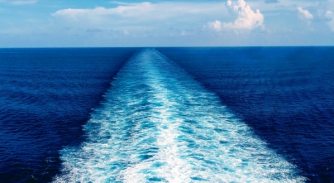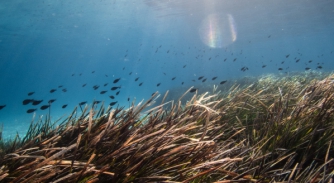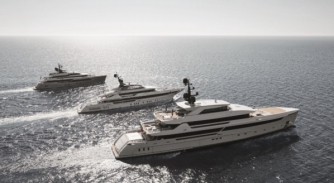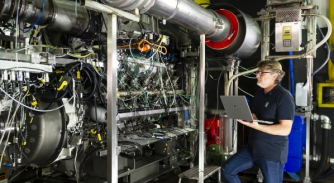Navigating sustainability jargon
With companies presenting many 'greener' alternatives, distinguishing genuine solutions from greenwashing can be as tricky as spotting the wood from the trees…
As boat show season is in full swing, sustainability buzzwords will be sprinkled throughout many conversations, often causing confusion about their meaning and usage in different contexts. Sustainability Editor Megan Hickling gives a quick rundown of some commonly misunderstood terms you might encounter, equipping you to better navigate the discussions.
Carbon Neutral
If a product or service is carbon neutral, it means that the carbon emissions (usually measured as carbon dioxide or carbon monoxide) produced during its life cycle are offset by carbon reduction efforts (through absorption or avoidance). This is achieved through carbon emission reduction followed by carbon credit offsetting, or by designing the product to ensure that the carbon absorbed during its production equals the carbon released during its subsequent use and end-of-life stages.
However, due to concerns about accuracy and effectiveness in offsetting and the risk of greenwashing, the European Union plans to ban this term by 2026, along with other vague environmentally focused terms, as they may mislead the public about environmental credentials.
Net Zero
While similar to carbon neutrality and facing similar controversies, net zero encompasses all greenhouse gas emissions (primarily CO2, NOx, Methane, and Chlorofluorocarbons). Net zero is often applied on a broader scale, such as entire countries adopting policies to achieve net zero emissions by specific dates.
Net zero means that the entity in focus produces as much greenhouse gas emissions as it removes from the atmosphere. Achieving net zero, like carbon neutrality, involves reducing and then offsetting GHG emissions.
For both carbon neutrality and net zero, achieving these goals for a superyacht would entail design adjustments for improved efficiency, reduced power demand (e.g., lower maximum speeds), or the use of alternative, less emission-intensive fuels such as Hydrogenated Vegetable Oil (HVO) to substantially reduce operational emissions. The remaining emissions would then be offset through credible solutions that remove these emissions from the atmosphere.
Eco-friendly vs. Sustainable
"Eco-friendly" focuses on environmental impact, specifically the impact on local and global ecosystems. These are typically products designed to have minimal or no detrimental effects on the environment. For instance, non-toxic biobased cleaning products are an eco-friendly alternative as they do not harm the living organisms that constitute ecosystems during the product's life cycle.
"Sustainability" is a broader and more complex concept. It involves ensuring that actions taken by governments, organisations, or individuals do not negatively affect the ability to sustain these actions in the future. Sustainability encompasses three main spheres for businesses (commonly referred to as the triple bottom line): Environmental, Social, and Economic.
For example, a shipyard can become more sustainable by improving its environmental impact and ensuring that the business benefits its employees and other stakeholders, ensuring its ability to operate in the foreseeable future. This could be achieved through fundamental changes such as improving environmental impact on operations, as well as supporting local initiatives to benefit both local communities and more global causes, and ensuring internal structures promote employee well-being and career growth.
These aspects should be evident in the sustainability reports that many are beginning to publish, with the transparent reports from shipyards such as MB92 proving a welcome approach to sustainability reporting.
These subjects are convoluted, and each player in the superyacht industry is approaching its issues along unique pathways. In a world awash with sustainability buzzwords, it's crucial to cut through the confusion and get to the heart of meaningful change. Armed with a clear understanding of these commonly misunderstood terms, we can all play a part in steering the superyacht industry towards a greener and more responsible future.
NEW: Sign up for SuperyachtNewsweek!
Get the latest weekly news, in-depth reports, intelligence, and strategic insights, delivered directly from The Superyacht Group's editors and market analysts.
Stay at the forefront of the superyacht industry with SuperyachtNewsweek
Click here to become part of The Superyacht Group community, and join us in our mission to make this industry accessible to all, and prosperous for the long-term. We are offering access to the superyacht industry’s most comprehensive and longstanding archive of business-critical information, as well as a comprehensive, real-time superyacht fleet database, for just £10 per month, because we are One Industry with One Mission. Sign up here.
Related news

WRF set to release eco guidelines for on-board practices
A comprehensive set of eco guidelines, from and by crew, to guide in daily operations towards ‘eco-friendlier’ on-board practices
Crew

The Posidonia Problem
Swiss Ocean Tech's Suzy Chisholm explains how increasingly strict EU regulations threaten to restrict anchoring access for large yachts in the Med
Crew

Offset and match
Offsetting in the Superyacht Industry is a complex issue and one that may still have a part to play on the path to carbon neutrality
Opinion

Sanlorenzo plans for net-zero superyachts in 2027
Sanlorenzo's R&D and technical department engineers together with Lloyd’s Register will tackle this challenge
Business

Rolls-Royce successfully tests mtu engines with pure hydrogen
Rolls-Royce has successfully tested a 12-cylinder gas variant of the MTU Series 4000 L64 running on 100% hydrogen
Business
NEW: Sign up for
SuperyachtNewsweek!
Get the latest weekly news, in-depth reports, intelligence, and strategic insights, delivered directly from The Superyacht Group's editors and market analysts.
Stay at the forefront of the superyacht industry with SuperyachtNewsweek



